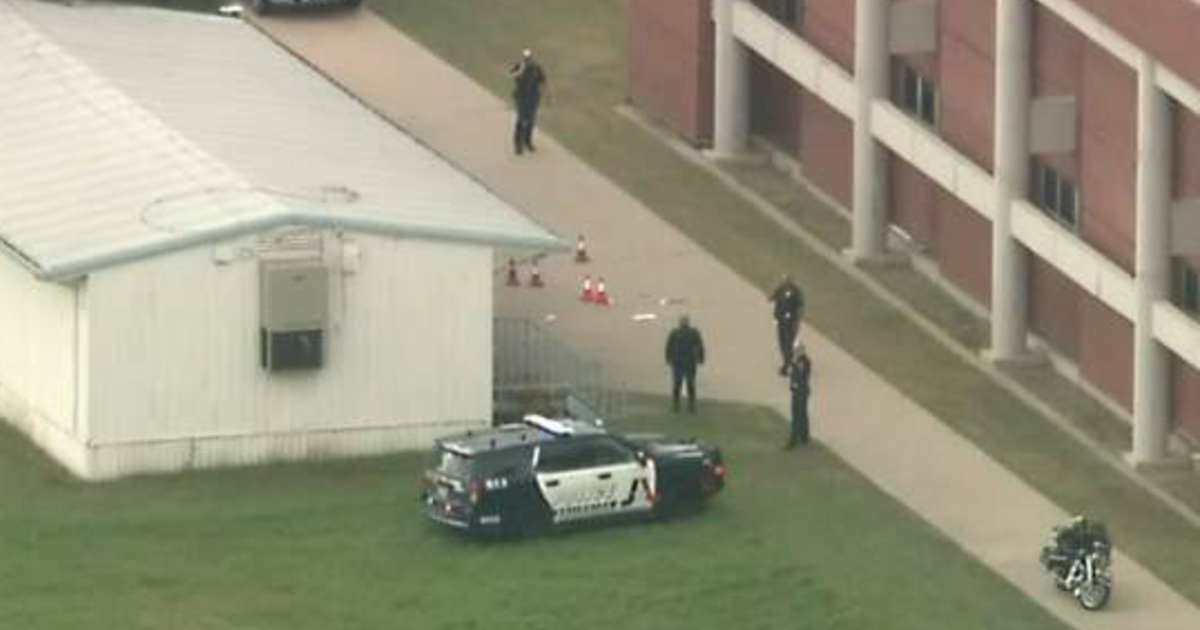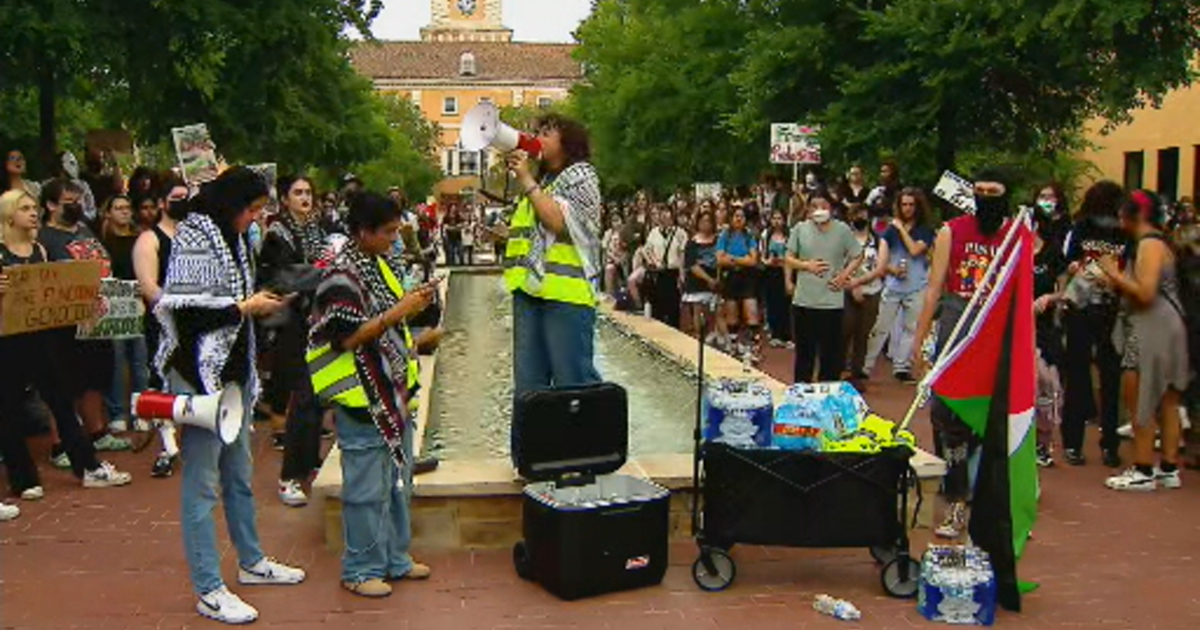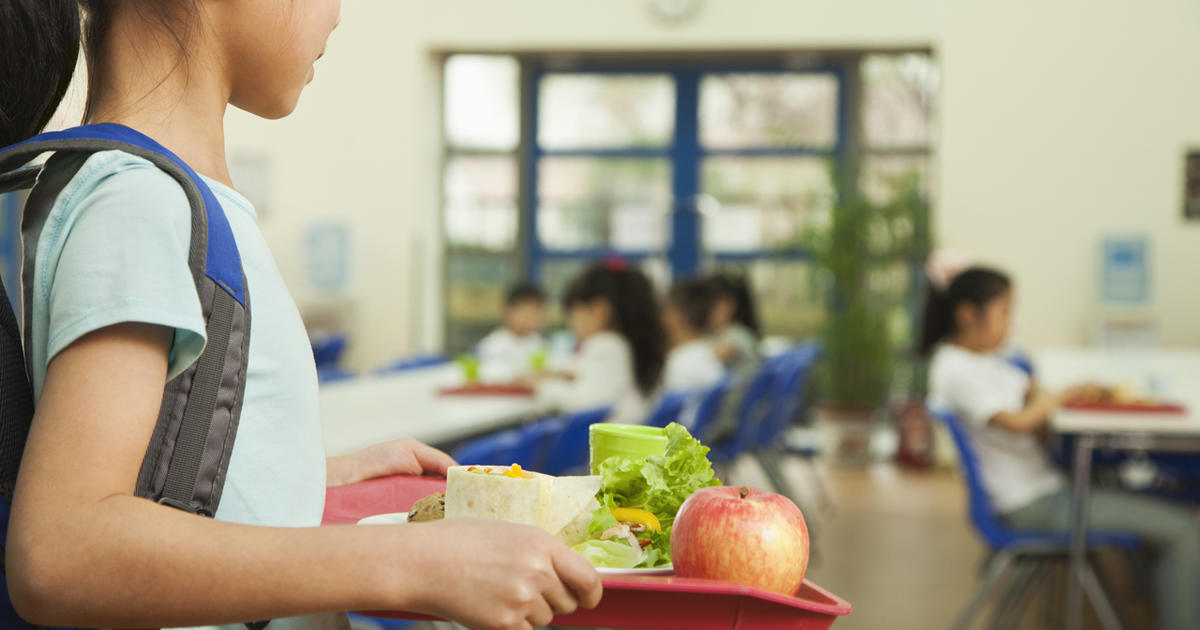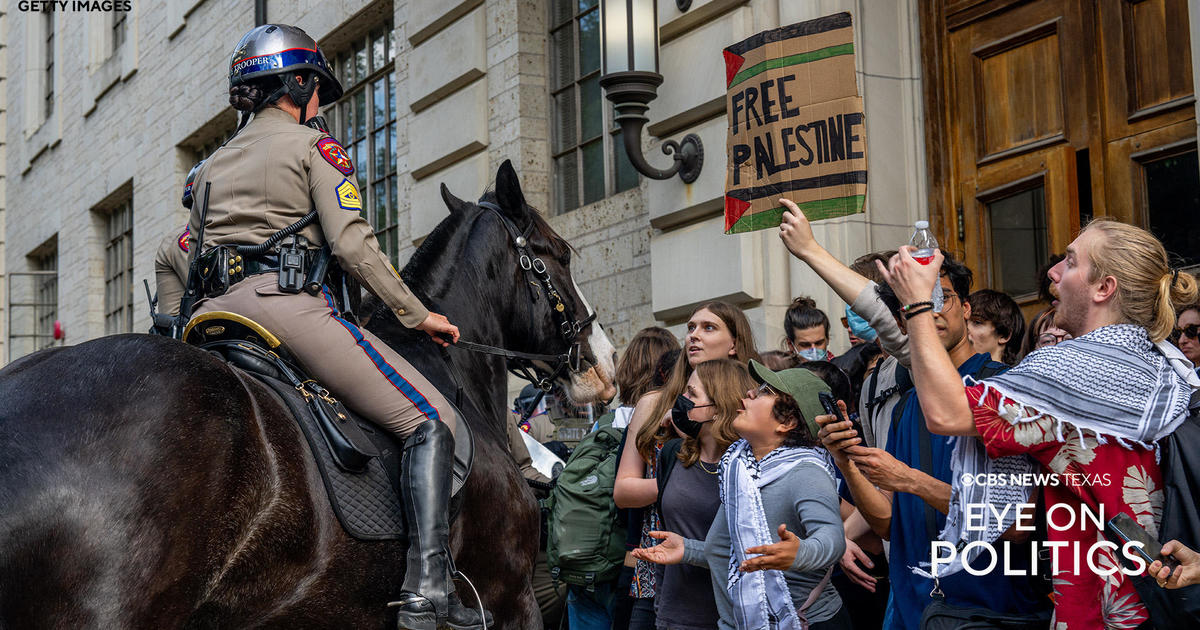Handcuffed in Hallways: Teaching alternatives to restraints in schools
AUSTIN (CBSNewsTexas.com) — The I-Team has learned that at least 83,416 students have been restrained at Texas schools in the last three years.
It's a controversial topic that CBS News Texas, and our stations across the country, have been following for months.
The I-Team has told the stories of students who do not appear to be posing threats at school being restrained by teachers, police officers, and security staff.
CBS News Texas has gone to Austin where advocates are supporting several bills to ban restraints in our schools unless a student is posing a threat.
Restraining children in school is legal in Texas. Most of the advocates, lawmakers, and parents the I-Team has interviewed all agree that restraint and/or an arrest is always needed if a child is putting him/herself in danger or threatening another person. However, many advocates and parents say too many children are restrained despite not posing any threat at all.
TEACHER IN TRAINING & FUTURE STUDENT ADVOCATE
Sara Easley is an education student at Baylor University. She graduates next month and will soon have a class of her own.
She's spent months training inside a classroom at Midway Independent School District. She says that is where she has learned alternatives to restraints.
"We go through, 'Are you in this range of emotions, this range of emotions, or this range of emotions?' We have them color coded."
Easley explains how they talk to their students. "We really try to use that to figure out where kids are and offer than options to calm themselves."
She says the hands-on experience has trained her to separate students in distress, ask them to take breaks, go for walks, step outside, and give them fidgets.
The future teacher is also a student advocate. She is so firmly against restraining and arresting children in front of their peers, she tells the I-Team, that she is talking to her professors about teaching alternative strategies to students studying to be teachers.
And Baylor appears to be committed to listening.
I-TEAM QUESTIONS TEXAS UNIVERISITES ABOUT TEACHER RESTRAINT TRAINING
The I-Team reached out to several major Texas universities asking the following questions:
Do students studying to be teachers in your education program take any class, or undergo any training, related to alternative methods related to restraints (and arrests) in our Texas classrooms?
If yes, what course?
If no, are there plans to incorporate this discussion in your curriculum in the future?
Baylor University sent a very thorough response which ends stating that the University is discussing de-escalation strategies inside the classroom.
BAYLOR UNIVERSITY RESPONSE
Texas legal requirements pertaining to schools and teachers, including disruptive behavior and student containment, are addressed within several education courses at Baylor. The Texas Educator Code of Ethics and basic legal matters are taught in the freshman course, TED 1312, prior to a supervised in-school experience with students.
Before the start of the student-teaching year, in which Baylor students teach full-time four days a week, Baylor students attend a seminar on school law led by an attorney who is also a member of a local school board.
Students in the special education program receive specific content in the following courses:
- EDP 3376, applied behavior analysis, focuses on managing disruptive behaviors using positive behavior interventions.
- EDP 4352 reviews the Texas Administrative Code regarding restraint and time-out policies, among other legal requirements pertaining to disruptive behavior.
Special education faculty place emphasis on child safety. In order to keep children safe, teachers must be well trained in positive behavior interventions so they can manage disruptive or dangerous behaviors in a way that is safe and respectful to their students.
Baylor is committed to providing the best possible training for future teachers that is focused on student well-being. To that end, discussions are in process regarding school-wide content focused on de-escalation strategies, school safety, and the psychological and spiritual impacts on teachers.
TEXAS A&M RESPONSE
"… at this time, students here learn many techniques aimed at classroom management as preparation for their future profession. We do not see these preparations as alternatives to restraint or arrest as we don't see either restraining students or arrest as role for a teacher."
UNIVERISTY OF TEXAS AT AUSTIN
"… would like to politely decline participation in the poll."
UNIVERSITY OF NORTH TEXAS
"Our students learn ways of creating community in classrooms, ways of planning engaging learning experiences, and ways of addressing disruptions that maintain a hope for positive outcomes. We do have specific courses in the program that teach new teachers how to create positive environments, and it's a throughline in all the classes they take."
SOUTHERN METHODIST UNIVERISTY
"…our Teaching and Education department within the Simmons School… offer(s) a special education behavior class that discusses the escalation/de-escalation cycle, but not in the context of a specific restraint alternative. And there is a course on the Education Policy and leadership track that discusses legal and ethical implications of the use of physical force in discipline."
TEXAS CHRISTIAN UNIVERSITY
TCU did not send the I-Team a statement. Instead, CBS News Texas visited the university to better understand how researchers there are teaching future teachers.
TCU states it is the only university in the country with two on-campus lab schools providing early interventions for children with developmental delays.
Dr. Endia Lindo is an associate professor of special education and the faculty coordinator for the College of Education Graduate Studies. Dr. Lindo is adamantly opposed to restraining a student unless it is absolutely necessary to avoid a potential threat or injury to oneself or another.
"All of our teachers talk about classroom management being an area they need support or help," says Dr. Lindo.
She works with her students to explain the tactics needed to manage children with disabilities who may be experiencing a difficult time, as well as children who may be causing a disruption or potential trouble inside a classroom.
Dr. Lindo says professors teach focusing on deescalating situations which may trigger children.
"Understanding 'Hey, this kid is really goes off when they're frustrated with this moment or this space, or as we transition.' Well, what do we do to add in that transition?"
She says they teach and research positive and "better ways" to curb the triggers "…causing the behavior that might be leading to do restraint."
Dr. Lindo expresses how important is for educators to build a classroom filled with "community" and trust, so students feel safe at school.
"Sometimes we tend to lean in into behavior versus maybe planned ignoring or just kind of de-escalating, stepping away…. You know, they're yelling and screaming, you get softer, and so on."
Dr. Lindo explains the next step is stepping back and breathing.
She says she encourages teachers-to-be to reinforce positive behavior. "Instead of going, 'Hey, Johnny, sit down,' that's now made everyone's attention to that kid, and kind of maybe embarrassed him/her." She says, alternatively, "I could go, 'Oh, I really like how you guys are having a seat.' And usually that kid has just gotten off-track or distracted."
In environments such as TCU's lab-schools and in traditional schools, Dr. Lindo says at least one person should have the appropriate training to restrain children if and when necessary. But she says it should be done as seldom as possible and only when it is used to stop a child who poses a threat.
"We want to minimize those incidents, whatever the case, whatever the population," says Dr. Lindo, explaining why restraint is not in the curriculum and not what she wants to see inside schools.
"…there are just some places that shouldn't be happening."
'I'VE HAD BRUISES FROM STUDENTS'
Sara Easley will become Ms. Easley inside a classroom of her own this fall. She adamantly says she does not ever see herself restraining a child.
She stresses that she understands the challenges teachers face and that she has experienced them firsthand; she says she has been injured by a student in the classroom and she has seen other educators injured.
"It's not uncommon to get a concussion. I have had bruises from students," says Easley. "One of the teachers on my current campus had a knee broken."
Easley hopes the alternatives she's learned to control situations will prevent the issue from ever arising in her schools. She's very concerned about causing "traumatic suffering" to children.
She does not believe enough teachers are properly trained to restrain correctly.
In the years to come, Easley says she's trying to get the conversation on the table about regulating mental health and emotions inside the classrooms and school settings.
"I wish it wasn't a conversation we've had to have, but it is and that's sad."
Easley says she is now working with the Baylor School of Education. She wants to be a part of the discussion to help make school spaces safer for students and students.
"Advocacy for schools is just very important to me."



